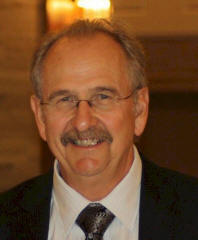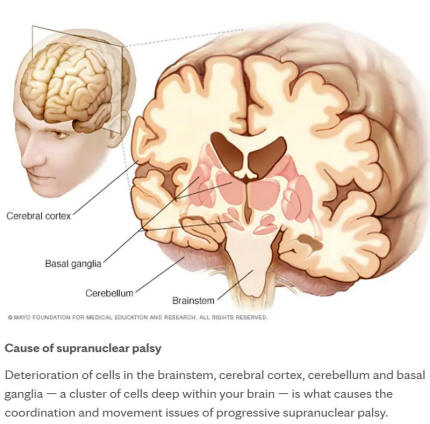|
Cecil Draper
- Progressive Supranuclear Palsy (PSP)
|
 |
|
Cecil Draper |
My husband, Cecil Draper,
served in the CF from 1965-1996. He was in the 411 trade (Vehicle
Technician). According to his recollections, he used
Carbon Tetrachloride (CTC) routinely
for cleaning engine components such as cleaning hydraulic lines, brake
lines, starters, alternators, heating/cooling motors, sensors, fuel
atomizers or injectors, connecting rods, distributors, carburetors,
superchargers and turbo chargers throughout the early decades of his
career.
In 2019, he began to experience sudden, unexplained backward falls. He
had difficulty walking, his voice became softer and slurred, his
handwriting became increasingly illegible, he exhibited a cognitive
decline and he had difficulty clearing phlegm from his throat resulting
in a lot of unproductive coughing. Over the course of a year, he was
seen by a myriad of specialists. In July of 2020, he was seen by a
neurologist at the Movement Disorder Clinic at Toronto Western Hospital
who diagnosed him with a rare neurodegenerative brain disease called
Progressive Supranuclear Palsy (PSP). This
is a rapidly progressing disease is often misdiagnosed as Parkinsonís
Disease. PSP is grouped together with two other diseases, Multiple
System Atrophy and Corticobasal Degeneration. These three
neurodegenerative conditions can be categorized as Atypical Parkinsonís,
atypical parkinsonismís, or Parkinson-plus disorders.
PSP is a disorder that can affect gait, balance, speech, swallowing,
vision, eye movements, mood, behaviour and cognition. Life expectancy is
typically 5-7 years after diagnosis. The patient with PSP ends up
wheelchair and/or bed bound, on a feeding tube (if they wish to prolong
their life), unable to speak, and with severely impaired vision or no
vision at all. Executive cognitive function is impaired and some
patients may develop other forms of dementia such as Lewy Body Dementia
or Alzheimerís. Many patients pass away before the onset of all symptoms
due to catastrophic falls and/or aspirational pneumonia.
Diagnosis of PSP is made by clinical findings as currently; there are no
definitive biomarkers upon which to base diagnosis. Only a brain
autopsy, can offer an exact diagnosis. This is the cruel disease that my
husband is afflicted with.
I am his full time caregiver and advocate. In 2019, I took over
completing and submitting PSC applications for a variety of issues that
mostly centered around osteoarthritis as Cecil was unable to complete
the online forms. This was an early sign of his cognitive decline. As
his Power of Attorney, I interface regularly with VAC as I navigate the
benefits, treatments and services that Cecil is entitled to. I have also
worked with the Bureau of Pension Advocates (BPA) to successfully appeal
two of my husbandís other conditions.
Upon the advice of a VAC agent, I applied for PSC attributing Cecilís
diagnosis of PSP to his exposure to Carbon
Tetrachloride (CTC) and other toxins during his
military service. It was a lengthy submission (around 250 pages) where I
referenced a variety of research papers related to specific toxic
exposures and subsequent cell alterations that take place within the
human body. These cell alterations known as mitochondrial dysfunction is
what is believed to cause both neurodegenerative diseases and cancers.
Hence the reason that science is looking to environmental factors when
searching for the causation of particular diseases. A well-known saying
in the medical/scientific community is ďGenetics loads the gun. The
environment pulls the trigger.Ē
The PSC application was submitted to Veterans Affairs Canada (VAC) on
March 19, 2024. I had it Red Zoned and received an unfavourable decision
3 weeks later, in April. I immediately asked for an appeal. The Bureau
of Pension Advocates has indicated that the appeal is also being
expedited and there should be a hearing date within 1-2 months. Randy
Hladun, a contributor to the website, had given me a letter from the
Occupational Medicine Specialist who wrote a letter supporting Randyís
PSC Claim and also a copy of the Veterans Review Appeal Board (VRAB)
decision related to his cancer diagnosis and his exposure to carbon
tetrachloride. I have shared these documents with the lawyer from BPA
who is working on Cecilís file. I will advise this group as to the
outcome of our appeal.
Stay strong!
Marnie Draper
Symptoms
Symptoms of progressive supranuclear palsy include:
-
A
loss of balance while walking.
-
A tendency to fall
backward can occur very early in the disease.
-
An inability to aim
your eyes properly.
People with progressive supranuclear palsy may not be able to look
downward. Or they may experience blurring and double vision. Not being
able to focus the eyes can make some people spill food. They also may
appear disinterested in conversation because of lack of eye contact.
Additional symptoms of progressive supranuclear palsy vary and may
mimic those of Parkinson's disease and dementia. Symptoms get worse over
time and may include:
-
Stiffness, especially of the neck, and awkward movements.
-
Falling, especially falling backward.
-
Slow
or slurred speech.
-
Trouble swallowing, which may cause gagging or choking.
-
Being sensitive to bright light.
-
Trouble with sleep.
-
Loss
of interest in pleasurable activities.
-
Impulsive behavior, or laughing or crying for no reason.
-
Trouble with reasoning, problem-solving and decision-making.
-
Depression and anxiety.
-
A
surprised or frightened facial expression, resulting from rigid
facial muscles.
-
Dizziness.
When to see a doctor
Make an appointment with your
healthcare professional if you experience any of the symptoms listed
above.
For more information
click here:
Mayo Clinic Family Health |

